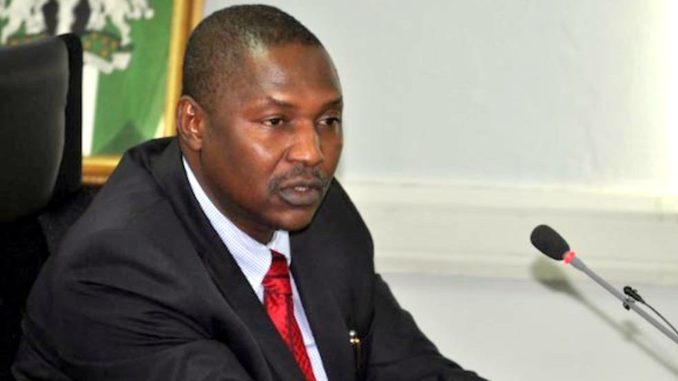
By Austin Elegbede
Abubakar Malami, attorney-general of the federation (SAN), has given reasons the federal government is yet to obey the court order to unfreeze bank accounts of 20 #EndSARS protesters.
Malami, while speaking on Sunrise Daily, a Channels TV programme monitored by TheCable on Thursday, explained why the federal government is yet to comply with the court judgment.
On October 15, 2020, Godwin Emefiele, governor of the Central Bank of Nigeria (CBN), directed banks to place a Post-No-Debit order on the accounts of 20 persons linked to the #EndSARS campaign.
Three weeks after, Mike Aondoakaa, counsel to the (CBN), obtained an ex parte order from the federal high court in Abuja to freeze the bank accounts of the #EndSARS campaigners for a period of 90 days.
At the expiration of the 90-day order on February 2,2021, the CBN moved to extend the period but later withdrew the application on Wednesday.
It was on this note that Ahmed Mohammed, a judge of the federal high court in Abuja, ordered the unfreezing of the bank accounts.
Malami said the federal government’s decision not to unfreeze the bank accounts immediately is because it is still weighing options as allowed by the law on such matters.
“We need to take in a lot of factors with particular reference to the compliance with the court order and within the context of striking a balance, the options that are available are multiple,” Malami said.
“One, the consideration of or a possibility of wholehearted compliance with the court order; that is, comprehensive, unconditional compliance with the order relating with the unfreezing of the #EndSARS account.
“But, that does not take away the right of government to give a further consideration when the need arises. A consideration for example, of excising the right of appeal against the order, of excising a right of appeal against the order if the need arises coupled with the right of stay of execution of the order or perhaps, application of variation of order among others.
“While the government has chosen to exercise those rights and indeed an appeal of variation of the court order or an appeal for setting aside the order or perhaps stay of execution of the order, you cannot within the context of the rule law adjudge the government as operating in breach of the order.
“It all depends on, for example, where parties unilaterally settle for arrangement or the order is a product of settlement arrangement, I think the possibility of considering options associated with appeal of variation of the order or setting aside the court order may not necessarily come into play.
“But where it indeed is product of contentions between the party ‘A’ saying, ‘this is the way it is’, and the other party saying no, ‘this is the way it is’, the court will now decide to make a ruling one way or the other. So, the right of appeal, right of application to set aside the court order or perhaps, maybe a staying of execution of the order may come into play.
“It all depends on the prevailing circumstances. It is the prevailing circumstances that determine what decisions, what provision, what direction the party involved in the suit or the party affected by the order will consider as the next line of action to take.
END

Be the first to comment